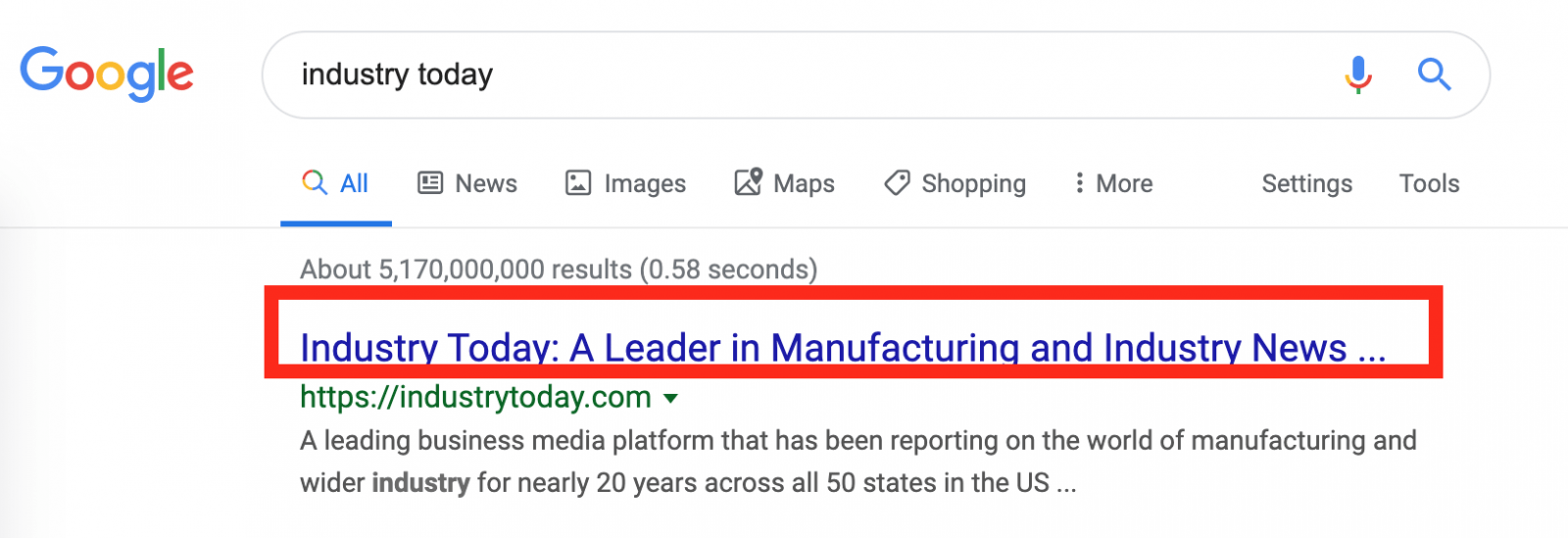
SEO 101: Here’s What You Need to Know
You have built an amazing website.
The design is gorgeous.
It’s been optimized to be readable on every device.
The content is perfect—it’s salesy without being too salesy and you are sure it will convert just about everybody who pays your site a visit.
Unfortunately, without doing SEO, the likelihood that anybody will actually be able to find your site when they need it (unless they already have its URL), is smaller.
What Is SEO?
Every couple of weeks the major search engines send out bots (“spiders”) to crawl over every site on the internet and see if there is anything interesting to “eat.” These spiders analyze every site and then figure out how to categorize and rank that site in a searcher’s results pages (SERPs).
SEO is an acronym for Search Engine Optimization. It is a catch-all term for the steps businesses need to take to make sure their websites get noticed by the spiders and then get ranked as highly as possible in a person’s search engine results.
Why Does SEO Matter?
Your website is one in literally millions of websites published online.
Without SEO, web searchers would have to scroll through hundreds of pages of sites to find the one they want or need.
Would you want to scroll through hundreds of pages of search result to find the exact site you need?
Of course not!
SEO techniques help you elevate your site within a searcher’s results, so they are more likely to see it and to know that it is relevant to their search query.
On-Page vs. Off-Page SEO
There are two basic techniques to SEO: on-page and off-page. Both have their advantages and disadvantages.
On-page SEO focuses primarily upon proving your site’s relevance to searchers. It is also the easiest for you to control, as it only involves techniques used on your website’s pages. We’ll get into more detail about these techniques soon.
Off-page SEO focuses mostly on increasing your site’s popularity, which is called “authority” in SEO circles.
Authority building involves content that is published elsewhere on the web but that links (“points”) back to your own site. You can do this by going through methods like guest blogging and sponsored content.
You also need to create a website that others will want to link to even without a paid incentive. Links that haven’t been paid for carry more weight with the search engine spiders.
The Basics of On-Page SEO
As previously stated, on-page SEO is everything that a site builder/writer can do on each specific web page to catch the attention of the search engine spiders. Typically, these actions include keywords, tags, internal links, and titles and descriptions.
Keywords
What, exactly, are keywords you might ask?
Keywords are the words and phrases that a company thinks potential clients will use when searching for their products and services online. They help to clarify what a business does, and the content of a company’s site will be about.
It is imperative that a company takes its keywords seriously.
Yes, it is possible to create content organically and then hope that it will help searchers magically find the right pages on a website. It is much better, however, to thoroughly research the best keywords for the company’s niche(s).
In addition to helping to provide clarity for content creation it helps companies figure out which businesses they will be competing against for searchers’ attention.
Meta Title & Description
Meta titles and descriptions are also called “title tags” and “description tags.” These are little bits of HTML code contained within every page that specify what that page is called and what that page is about.
For example: <head><title>Best Website EVER</title></head> is the meta title.
Typically, the title tag is between 50-60 characters long. According to Moz.com, if you are able to keep your title tags to fewer than sixty characters, you’ll have a “90% chance of your titles displaying properly.”
Meta descriptions and description tags are a little different than the titles of your pages. These snippets describe what each page is about and are a good place to insert a keyword or two—particularly the keywords for which you most want that page to rank.
These descriptions have to be short—a little shorter than the average tweet and they are often what search engines will display under a page’s title on SERPs. Really, they’re more for the searcher than the spiders.
Header Tags
Header tags are contained within your site’s content. In your site’s code, they are marked with a <h1>, <h2> etc., tags.
They help to break up your page and make it easier for readers and search engines to scan and understand your page’s content. Also, it’s a very a good idea to include keywords in them.
Internal Linking
Internal linking is exactly what it sounds like: links from one page of your website to another. Most site owners already have some of these in place via their navigation menu. What the search engines want, however, are contextual links between a site’s pages.
For example, blog post A mentions blog post B and links to it so that post A’s readers can find out more if they want to. Each link helps improve a page’s ranking and categorization within a searcher’s SERPs.
Image Alt Text
Hubspot defines alt image text as “the written copy that appears in place of an image on a webpage if the image fails to load on a user’s screen.” This alternate text serves a couple of purposes:
1. It tells users what they would have seen if the image had loaded properly (this is also helpful if a blind person is using a site).
2. It gives companies one more place to mention your keywords contextually and improve their keyword rankings in SERPs.
Most site building platforms have a mechanism in place for composing alt text, so companies won’t have to worry too much about their coding abilities when building their site content.
Where to Start with SEO
This is a lot to take in and it’s easy to not know where to start building an SEO strategy. The best place to start is keyword research. Almost every aspect of SEO is dependent upon knowing which keywords matter most.
Want Done-For-You SEO With Proven Results? Let’s Talk.
It’s understandable that, after all of this, you feel overwhelmed.
If you’re not sure how to approach your company’s SEO, the Inbound Marketing Specialists at Satellite Six can help you get everything figured out. Get the process started by visiting joinskylab.com!





Comments are closed.